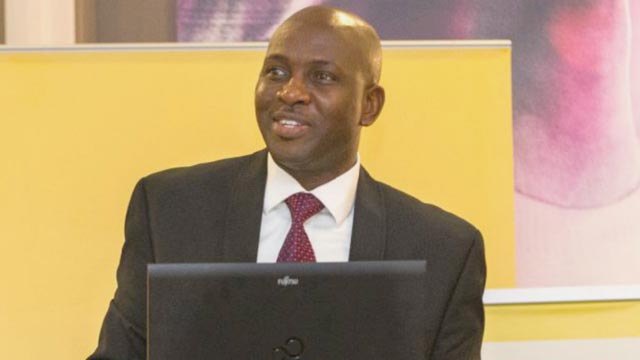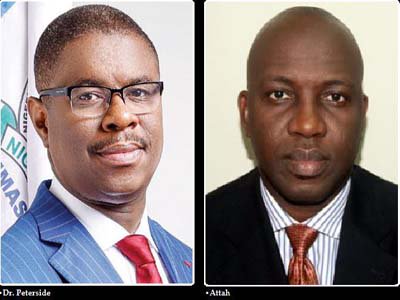By Chioma Obinagwam
Fifteen Scientists have sent in their research papers on finding a long-lasting solution to Malaria in a contest to win the Nigeria Liquefied Natural Gas (NLNG) sponsored The Nigeria Prize for Science worth $100, 000.
The company disclosed that the entries came in response to a call for entry which was published in February 2016 and were handed over to the panel of judges by the Chairman of the Advisory Board for the prize, Professor Alfred Susu, a past winner of The Nigeria Prize for Science in Lagos, recently.
NLNG noted that submissions will be examined on their merits of finding solutions to the Malaria scourge which is the thematic focus of this year’s(2016) prize.
Other members of the Advisory Board are Professor Michael Adikwu, Vice-Chancellor, University of Abuja and also a past winner of the science prize; Professor Elijah Mshelia, a nuclear physicist; Professor Barth Nnaji, renowned scientist and former Minister of Power; and Chief Dr. Nike Akande, President, Lagos Chamber of Commerce and Industry.
The panel of judges, it noted, is led by Professor Catherine Falade, a professor of pharmacology, at theUniversity of Ibadan. Other members of the panel include Professor Sunday Ene-Ojo Atawodi, Professor of Biochemistry at Ahmadu Bello University and Prof. Obioma Nwaorgu, a public health parasitologist and epidemiologist from Nnamdi Azikiwe University, Akwa.
This will be the first time in five years scientists would submit entries for the prize since 2012. The prize had been under review since then as a result of the quality of entries submitted. The review was as recommended by stakeholders at an engagement session the same year. The Advisory Board was reconstituted this year to re-position the prize for better impact on living standards in the country.
According to Kudo Eresia-Eke, NLNG’s General Manager, External Relations, “major changes were made after the review, one of them being to refocus the prize to identify societal problems that need solving and encourage as wide a range of people as possible to solve them. We believe this is the path to take to make meaningful impact on the lives of Nigerians”.
“Other changes include expanded participation and introduction of themes. Now, Nigerian scientists and scientists from all over the world are welcome to participate. Also, the competition is now thematic, to find solution to specific Nigerian problems. This year, we called for entries that will find solutions to Malaria in line with this year’s theme: Innovation in Malaria Control”.
ALSO SEE: FG to boost local content in ICT sector
He noted that Malaria has remained one of the deadliest diseases in the country.
Specifically, he stated that recent studies indicate that Nigeria has the highest number of malaria casualties worldwide, responsible for 29 per cent of childhood death, 25 per cent of infant mortality and 11 per cent of maternal mortality in Nigeria; adding that over N100 billion have been lost to the disease as cost of treatment and loss in man-hours.
“Imagine what this country would be if we found a permanent solution to this scourge. We will be increasing our life span, cut down on the scale of infant and maternal mortality; free up funds used in buying drugs for the hospitals and focusing our resources on more development initiatives,” Eresia-Eke said.
The first winner for the prize in 2004, he disclosed was Professor Akpoveta Susu and his then doctoral student, Kingsley Abhulimen. In 2005, there was no winner.
The NLNG spokes person also said that Professor Michael Adikwu won the prize in 2006 where as in 2007, as it was in 2005, there was no winner, and noted however, that in 2008, Dr. Ebenezer Meshida emerged winner.
He added that Professor Andrew Nok and Professor Akii Ibhadode won the prize in 2009 and 2010 respectively. There has been no winner since 2010.
Furthermore, he stated that there has only been 15 entries all over the world and that NLNG is looking out for excellence.
“There are 15 entries from all over the world. It has to be something that has been put through rigorous test and validated. It is all about excellence- becoming a winner for the prize of excellence,” he explained.
Corroborating, prof. Falade noted that although there has been significant reduction of 75 per cent of clinical cases of malaria in the country, there was need for the eradication of the disease.
ALSO SEE: NCC boss to address NIPSS on ICT
She, however, noted that certain habits, which includes not adhering to instructions are major challenges opposing the actualisation of the objectives.
“We don’t adhere to instructions. Many of us do not sleep under insect treated nets. Most of us don’t undergo tests before taking medication. We don’t have functional Primary Healthcare Centres,” she disclosed.
Prof. Falade added that as part of the screening process, the judges are looking out for proven validated innovation, especially those who are scientifically thinking outside the box.

 Entertainment1 week ago
Entertainment1 week ago
 Business1 week ago
Business1 week ago
 Business1 week ago
Business1 week ago
 Football1 week ago
Football1 week ago
 Entertainment1 week ago
Entertainment1 week ago
 Entertainment6 days ago
Entertainment6 days ago
 Latest1 week ago
Latest1 week ago
 Latest1 week ago
Latest1 week ago




